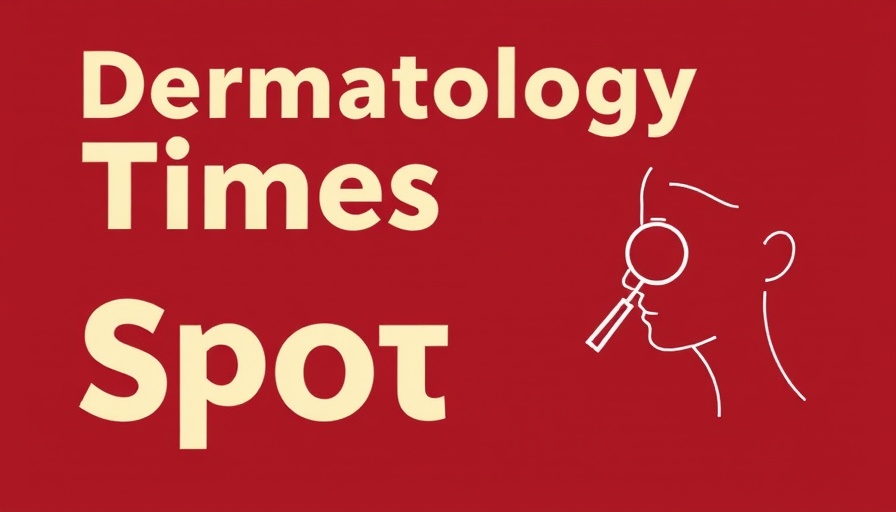
Discover the Latest Innovations in Dermatology for Healthy Skin
The world of dermatology is constantly evolving, and staying informed about recent advancements is crucial for achieving and maintaining healthy skin. This article highlights key findings from recent studies that are making waves in the dermatologic community. With a focus on plant-based ingredients and resistance to traditional treatments, this digest explores new approaches to skincare that are both effective and evidence-based.
A Breakthrough in Dandruff Treatment: The Power of Plant-Based Shampoo
Recent research published in the International Journal of Cosmetic Science reveals impressive results from a pilot study assessing the effectiveness of a new plant-based shampoo. Formulated with Ziziphus joazeiro bark extract and Apium graveolens seed extract, the shampoo showed significant improvements in clinical symptoms of dandruff over a four-week treatment period. Participants experienced notable reductions in scaling, redness, and trans-epidermal water loss.
One of the pivotal findings was that the shampoo improved the microbiome balance of the scalp, increasing the beneficial Cutibacterium/Staphylococcus ratio by almost 20%. This reaffirms the importance of maintaining microbial diversity for overall scalp health, aligning with the growing trend toward natural ingredients in personal care products.
Addressing Terbinafine-Resistant Trichophyton Dermatophytosis
As antifungal resistance becomes an increasing concern, a systematic review published in the Australasian Journal of Dermatology highlights the plight of terbinafine-resistant Trichophyton dermatophytosis. Researchers analyzed 47 studies involving 743 cases worldwide, linking specific SQLE gene mutations to treatment failure.
These findings signal a need for ongoing research and alternative treatment options for fungal infections, particularly considering that current protocols may require reevaluation in light of emerging resistance patterns. Recognizing such trends early can help healthcare professionals and patients make informed decisions regarding treatment strategies.
Innovations in Pediatric Dermatology: A Look at Vitiligo Treatments
Pediatric vitiligo remains a complex condition with varied treatment outcomes. Research indicates that tofacitinib, a Janus kinase inhibitor, stands out as one of the most promising options, exhibiting a high success rate without severe adverse effects.
This shift toward immunotherapy in treating vitiligo highlights a broader trend of moving away from traditional therapies to approaches tailored to the individual, particularly children and adolescents. Understanding the unique responses in this population underscores the importance of personalized treatments in dermatology.
The Value of Dermatology Sampling Practices
Dermatology sampling practices, including the use of diagnostic tests and targeted therapies, offer both benefits and challenges. Improved adherence to treatment regimens is often observed, yet concerns surrounding drug costs and potential safety issues raise valid points for consideration.
Health professionals are encouraged to balance these factors while advocating for their patients’ best interests, ensuring treatments remain accessible while prioritizing safety and efficacy.
The Future of Dermatology: Trends to Watch
The dermatology field is on the cusp of exciting advancements. New technologies and treatments promise to enhance existing therapies while also providing alternatives for patients with conditions previously deemed difficult to treat. With an increasingly plant-focused approach and heightened awareness of resistance, dermatology is adapting to meet modern skincare needs.
As consumers become more inclined to seek out evidence-based and natural solutions, the industry must respond by fostering transparency and innovation that prioritizes patient safety and satisfaction.
Take Charge of Your Skincare Journey Today!
Staying informed about the latest dermatological advancements empowers you to make better choices for your skin health. Whether exploring new treatments for conditions or simply seeking the best products for your routine, educate yourself about trusted sources and evidence-based solutions.
With a growing emphasis on natural ingredients and innovative therapies, now is the perfect time to evaluate your skincare regime. Embrace these advancements and consult with a dermatologist about how to integrate these revolutionary findings into your personal care routine!
 Add Row
Add Row  Add
Add 




Write A Comment